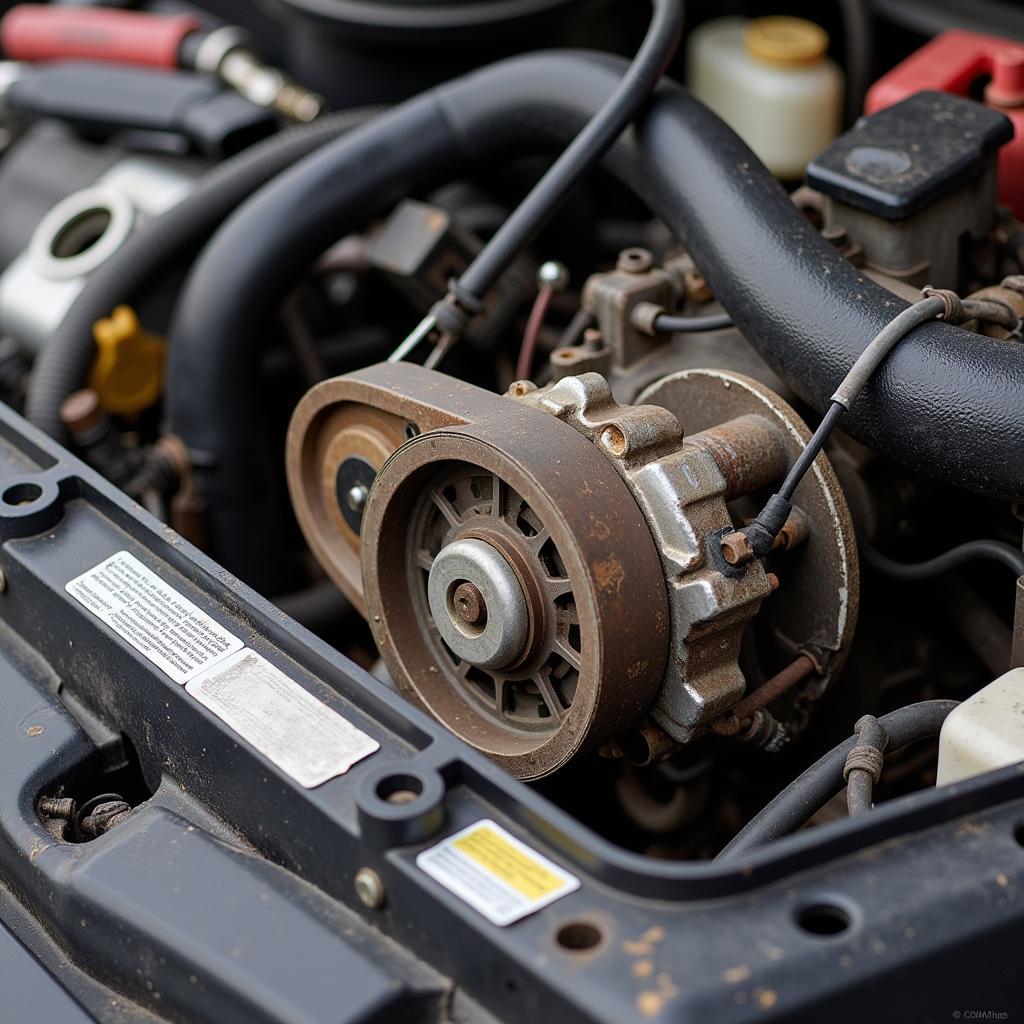Buying a used car with over 100,000 miles can be a great way to save money, but it’s important to be aware of the potential problems. What’s the problem with used cars with over 100k miles? Simply put, they’ve lived a life! This article dives deep into the common issues these vehicles face, helping you make an informed decision.
Understanding the Risks of High-Mileage Used Cars
A car with over 100,000 miles has undoubtedly seen its fair share of road trips, commutes, and maybe even a few fender benders. While modern cars are built to last, components inevitably wear down. Knowing what to look for can save you from costly repairs and headaches down the road. Is it worth the risk? Let’s explore.
Common Issues with 100k+ Mile Vehicles
Several key areas tend to show wear and tear after 100,000 miles. These include the engine, transmission, suspension, brakes, and electrical system. Don’t let a shiny exterior fool you; a thorough inspection is crucial.
- Engine: Oil leaks, decreased compression, and worn timing belts are common.
- Transmission: Slipping gears, rough shifting, and fluid leaks can signal trouble.
- Suspension: Worn shocks, struts, and bushings can lead to a bumpy ride and handling issues.
- Brakes: Worn brake pads, rotors, and calipers require attention for safety.
- Electrical System: Issues with the alternator, starter, and various sensors can crop up.
 High Mileage Engine Wear and Tear
High Mileage Engine Wear and Tear
Why is Maintenance History So Important?
A well-documented maintenance history is gold when considering a high-mileage used car. It provides valuable insights into how well the previous owner cared for the vehicle. Regular oil changes, timely repairs, and preventative maintenance can significantly extend a car’s lifespan. A complete service record offers peace of mind and can be a strong negotiating point. Would you buy a house without knowing its history? The same principle applies to cars.
How to Inspect a Used Car with Over 100,000 Miles
Inspecting a high-mileage used car requires a keen eye and a bit of know-how. Don’t be afraid to get your hands dirty!
- Check the Fluids: Examine the oil, coolant, transmission fluid, and brake fluid for proper levels and condition. Dirty or low fluids can indicate neglect.
- Inspect the Belts and Hoses: Look for cracks, fraying, or signs of wear.
- Test Drive: Pay attention to any unusual noises, vibrations, or handling issues.
- Professional Inspection: A pre-purchase inspection by a trusted mechanic is a must. They can identify potential problems you might miss.
“A pre-purchase inspection is worth its weight in gold,” says John Smith, Senior Automotive Technician at Smith’s Auto Repair. “It can reveal hidden problems that could cost you thousands down the road.”
Is a High-Mileage Car Right for You?
Ultimately, the decision of whether or not to buy a used car with over 100,000 miles depends on your individual needs and budget. If you’re mechanically inclined and willing to put in some work, a high-mileage car can be a bargain. However, if you prioritize reliability and low maintenance, a newer car might be a better choice.
“Don’t be scared off by high mileage,” advises Sarah Jones, Certified Mechanic and owner of Jones Auto Services. “With proper maintenance and care, these vehicles can still provide years of reliable service.”
What’s the problem with used cars with over 100k miles? While there are potential issues, a thorough inspection and a good maintenance history can mitigate the risks. Need help? Contact AutoTipPro at +1 (641) 206-8880 or visit our office at 500 N St Mary’s St, San Antonio, TX 78205, United States.
FAQ
- What are the most common problems with high-mileage cars? Engine, transmission, suspension, and brake issues are common.
- How can I avoid buying a lemon? Get a pre-purchase inspection from a qualified mechanic.
- Is it expensive to maintain a high-mileage car? Maintenance costs can increase, but proper preventative care can help.
- Should I buy a high-mileage car with no maintenance history? Proceed with extreme caution, as this is a significant red flag.
- What are some signs of a well-maintained car? Clean fluids, a detailed service record, and a smooth-running engine are good indicators.
- How can I negotiate a better price on a high-mileage car? Use any mechanical issues found during the inspection as leverage.
- Are extended warranties worth it for high-mileage cars? It depends on the terms and conditions, but they can provide some peace of mind.




Leave a Reply